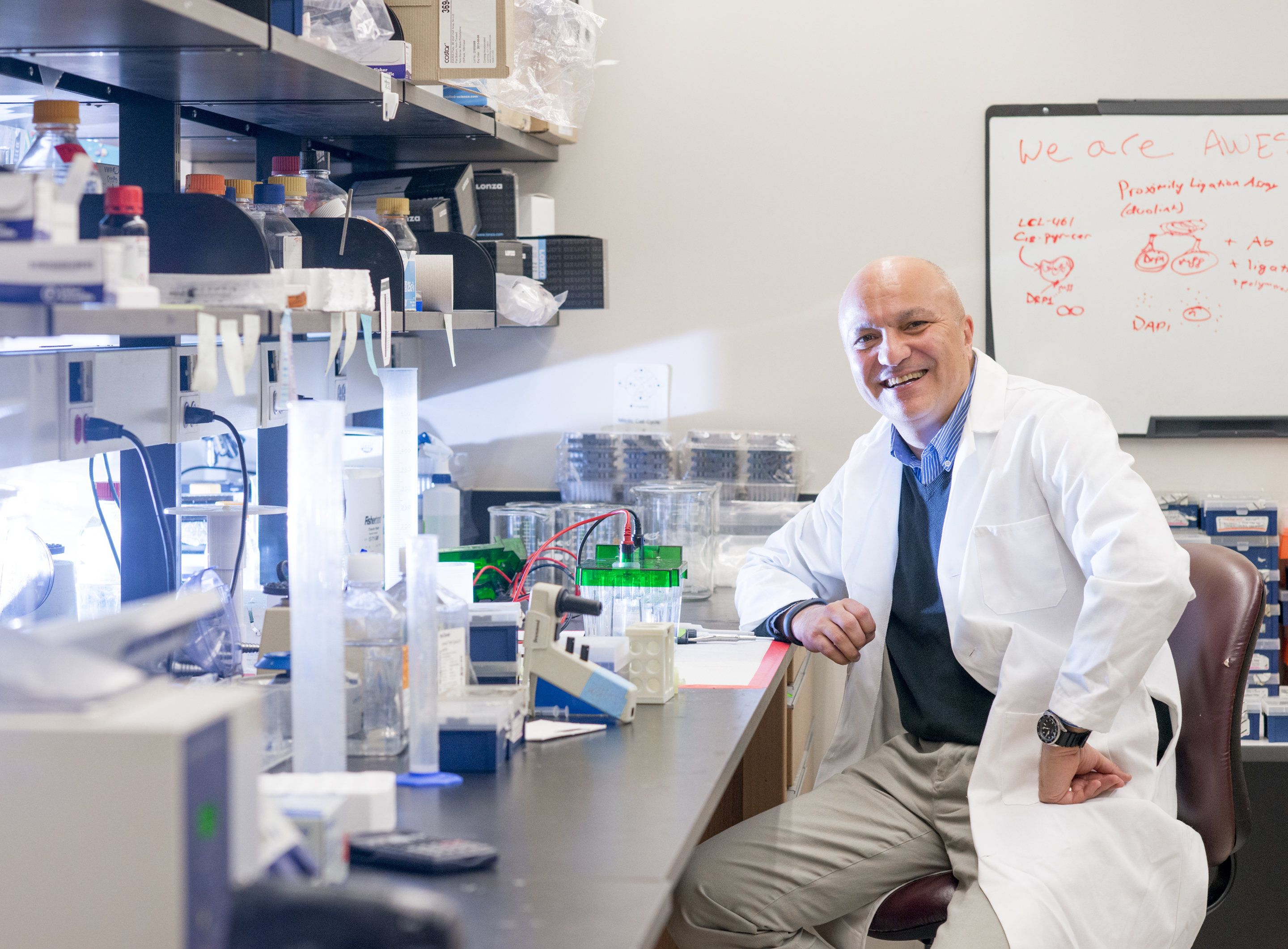Scientists at Hollings Cancer Center at the Medical University of South Carolina have found that human lung cancer cells resist dying by controlling parts of the aging process, in results published online May 10th in the Journal of Biological Chemistry. The discovery could help us better understand aging and eventually could lead to new treatments for cancer.
Cancer becomes more common as people get older, but scientists are still searching for answers about why this happens. At Hollings Cancer Center, research into the connections between aging and cancer is led by Besim Ogretmen, Ph.D., SmartState Endowed Chair in Lipidomics and Drug Discovery. Ogretmen’s team found that cancer cells have specific ways to resist dying the way normal cells do. They do so by protecting the tips of their chromosomes, which hold our DNA, from age-related damage.
Ogretmen studies how cancer cells are different than normal cells to understand how cancer grows and spreads in the body. His work is part of an $8.9 million program project grant to research how alterations of lipid metabolism affect cancer therapy. The grant is helping fund a clinical trial of an anticancer medicine to inhibit cellular signaling that helps cancer survive. The drug was found to be useful against cancer in the research reported in the group’s new paper.
